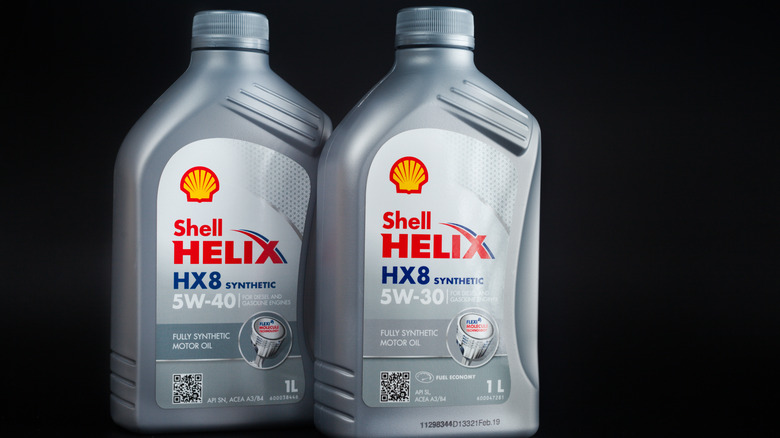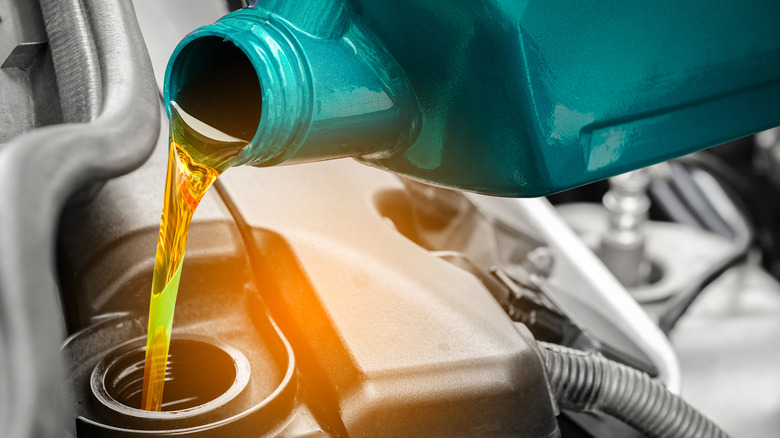What's The Difference Between 5W-30 And 5W-40 Motor Oil?
When choosing between two different types of motor oil for your car, it is helpful to understand these oil classifications. They conform to the Society of Automotive Engineers multigrading system, using the letter 'W' for winter, followed by numbers before and after it. The number to the left of the 'W' corresponds to the oil's ability to flow at low temperatures, like starting your engine after it sits overnight. The number to the right of the 'W' indicates how the oil flows at higher temperatures, like when your engine is fully warmed up. The ideal motor oil is really a trade-off between these two extremes — it must flow well enough to coat your engine's moving parts starting when the engine is cold, continuing until it reaches operating temperature.
The best source for the proper oil choice for your vehicle is the least-read book in the world — your owner's manual. It will list the best oil to use in a wide variety of climatic conditions, ranging from frigid winters to searing-hot summers, plus everything in between. Both 5W-30 and 5W-40 are commonly used in today's vehicles and usually available wherever motor oil is sold.
The primary difference between 5W-30 and 5W-40 is in each oil's high-temperature performance, since they perform similarly at low temperatures. The 5W-40 will exhibit better performance in high operating temperatures and high-performance conditions, up to 50 degrees C (122 degrees F). This compares to 30 degrees C (86 degrees F) for the 5W-30, making it more suitable for cars driven moderately under normal conditions.
What else should you know about motor oil for your car?
If you think you might be interested in learning how to change the oil in your car yourself, we have a step-by-step guide. Changing your own oil is not difficult and can save you a lot of money on the cost of a mechanic.
An important thing to remember when choosing oil is to use the exact type that your vehicle manufacturer recommends. In addition to using the proper grade of oil, like 5W-30 or 5W-40, you should also be aware of whether the manufacturer advises using synthetic oil for changes. Many mainstream carmakers recommend synthetic for their vehicles, including the Toyota Camry and Subaru Forester. Because 'thinner' oils with lower viscosities must hold up under increased temperatures and tighter mechanical tolerances inside today's modern engines, this has led to the increased use of synthetic oils. Yes, synthetic oil does cost more, but it also better protects your engine from the hazards of the daily grind. Check your owner's manual to determine whether synthetic oil is recommended for your car.
One final tip is to check your oil frequently. Many modern engines consume significant amounts of oil under normal conditions. This has resulted from changes in engine design to improve fuel economy, but some vehicles have been reported to consume several quarts between oil changes, which requires regular checking and topping up.

